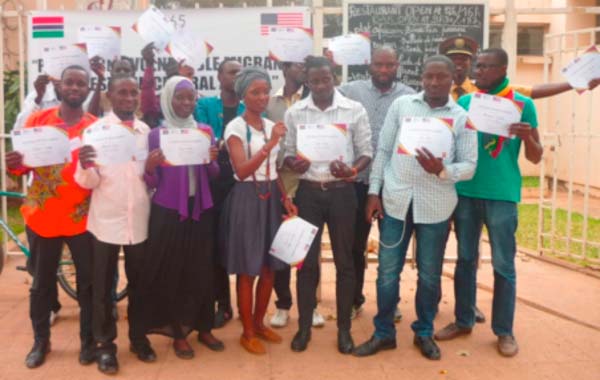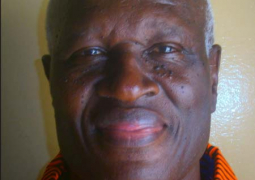
A
two-day training course for 15 media personnel on good practice in reporting on
migration organised by the International Organisation for Migration (IOM) ended
Thursday at the Alliance Franco.
Entitled:
“Protecting vulnerable migrants in West and Central Africa”, it falls under a
regional project, which covers the whole of West and Central Africa, including
countries such as Ghana, Burkina Faso, The Gambia and Senegal.
These
countries are also benefiting from the capacity-building activities for
government actors, civil society and the media.
The
media play a crucial role in transmitting the right information, and training
was being provided in order for journalists to be able to play their role and
adequately cover migration issues.
They
need to have a broad understanding of the subject, a proven knowledge of the
concepts and terminology of this topic, as well as a set of guidelines on
different issues and on type of media coverage.
According
to the organisers, journalists must avoid the “biased and undocumented”
treatment of these issues, sensationalism, stereotypes, simplification and
generalization, which was the reason for organising the training course.
The
training course focused on how to communicate on migration issues and respect
the rules of confidentiality.
The
main objective of the workshop was to better equip media professionals, to have
a better understanding and communicate on key concepts and terminology of
migration; strategies to address the challenges of respecting the rights of all
migrants.
Malick
Jones, deputy permanent secretary at the Ministry of Information and
Communication Infrastructure, in his opening remarks, said reporting on issues
by journalists is not something impossible rather it is a yearning and
consistent endeavour to seek knowledge through training and research to
reporting guidelines.
He
stated that the training course was timely, and the content would further boost
journalists’ ability to deal with the issue of migration and human trafficking.
He
challenged journalists to thoroughly pursue reading and documentation and
research on issues to further pursue their knowledge on the issue of migration
after the training course.
The
issue of migration has a very long history, he went on, adding that migration
today is more complex as it includes human trafficking, modern day slavery,
among other forms of migration.
Mr
Jones said there are many reasons why people choose to migrate and, therefore,
encouraged journalists to play their role adequately in their coverage of
migration issues.
Ansumana
Jawara, head of IOM Gambia office, said the West and Central Africa region has
a long history of intra- and extra-regional migration.
West
Africa, in particular, he added, has the highest intra-regional mobility in
sub-Saharan Africa due to the free movement protocols in the Economic Community
of West African States (ECOWAS), which facilitate population movements within
this community.
With
a rapidly growing population and a high percentage of young people under the
age of 35, most countries in West and Central Africa, are subject to
socio-economic challenges.
Security
and environmental factors that promote population displacement, and provide a
powerful incentive for migration along the migratory routes the vulnerability
of migrants are increasing.
Having
left their traditional environment and lacking the protection normally provided
by their communities, migrants often find themselves at the mercy of criminal
networks that set up exploitation mechanisms, in order to illegally profit from
the most vulnerable of them.


